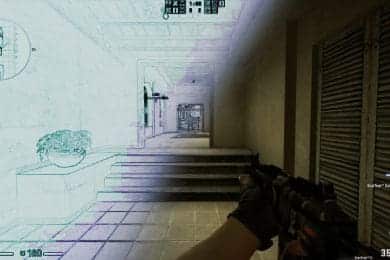Do you love playing video games? Do you have a knack for game design? If so, a career in game design may be the perfect fit for you! But, what experience do you actually need?
To become a game designer one will have to gain experience by creating games, writing documentation, and learning about what makes a game engaging. Taking a Game Development course or Computer Science degree can help tremendously with learning and give an extra edge when applying for jobs.
We will also provide an overview of the entry-level position as a game designer. So if you are interested in pursuing a career in game design, keep reading!
What Is A Game Designer?
A game designer is responsible for the creative vision of a video game. They are the ones who come up with the game concept, game rules, mechanics, create the characters, design the level concepts, and oversee the production of the game.
Game designers work closely with artists, programmers, and other team members to bring their game vision to life.
To be successful in this career, you need creativity, imagination, and strong problem-solving skills.
What Are The Skills and Experience Required For The Job?
To be a game designer, you need to have strong communication and collaboration skills. You should also be able to think creatively, outside of the box.
In terms of education, there are college programs that offer Game Development and Game Design diplomas that can teach you desirable skills for game design.
However, many game designers may have a degree in another field, such as computer science, and then transition into game design.
Skills
- Strong written and communication skills
- Must be able to work in a team and take constructive criticism
- Ability to interpret in-game data and analytics
- Create mock-ups and wireframes for game concepts and menus
Experience
- Bachelor’s degree in Computer Science or related field with equivalent experience
- 1+ delivered games
- 2+ years of experience
I’ll note that many companies will state, “Bachelor’s degree in Computer Science or related field with equivalent experience”. This means that you can get jobs without a degree.
Many companies will count a degree as 2-3 years experience (which can count towards that last requirement) over someone without a degree. But, if you have a strong portfolio it will help you get that first interview where you can demonstrate your experience.
How Do You Gain Experience To Become A Game Designer?
The best method to gain experience to become a game designer is to start creating games and writing documentation to go along with those games.
Creating games will allow you to see if your ideas translate into a fun and engaging gaming experience while documenting the game will give you the skills required for a career in game design.
When creating a game you do not need to create a full game with multiple levels and worlds, you don’t even need amazing art (unless the game is focused on the art). Keep the scope of the game to the core mechanics and prototype one level.
This method will allow you to create and test more ideas. Additionally, you’ll be improving documentation skills and building a portfolio.
It is important to write documentation on your game, from the mechanics to the UI, everything is important.

Ask yourself when writing your documents, if I gave this document to a programmer or UI artist, could they create the game without further instructions?
Can I Learn Game Design Without Learning Programming?
Yes, you can learn game design by writing detailed game design documents and asking others their opinion on the idea (bonus if you know a programmer to see if they would understand how to create the game described).
Another great method is to design board games!
A game does not have to be programmed, create board games and invite a group of friends over to test the new games. Ask your friends to review the game at the end of the night to get their opinion too – don’t take it personally if they do not like it!!
What Are Common Tasks For A Game Designer?
Many game designers will spend their working days writing game design documents that will contain game rules, game mechanics, compulsion loops, and design concepts (even artistic).
Compulsion loop: a cycle of activities that are encouraged to be looped or repeated because of a neurochemical reward.
Additionally, knowing how to design and create visual mock-ups and wire-framed screens for in-game menus, HUD elements, engagement, and monetization is a must. Knowing these skills will allow ideas and designs to be effectively communicated and even tested before being programmed.

Finally, game designers will spend a lot of time researching and interpreting in-game analytics and metrics to understand player behaviors better and adjust the game design accordingly.
What Is An Entry-Level Task For a Game Design Position?
The entry-level position for a game designer is typically a game design intern. This internship will allow you to learn about the game design process and gain experience working with a development team.

An entry-level game designer is typically responsible for creating game concepts, designing levels, and writing game rules. They may also be involved in playtesting games to identify any issues.
Summary
If you are interested in becoming a game designer consider pursuing a degree in Computer Science, Programming, or Game Development. This will give you the skills and knowledge you need for the job.
That being said, a degree isn’t necessary if you are a good self-starter, and can learn on your own. Many tutorials will show you how to make the core mechanics for a game that you can then expand upon to make your own.
You can also get involved in the game design community, through online forums or meetups. This will allow you to network with other game designers and learn more about the industry.


